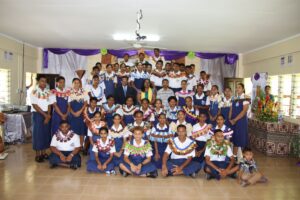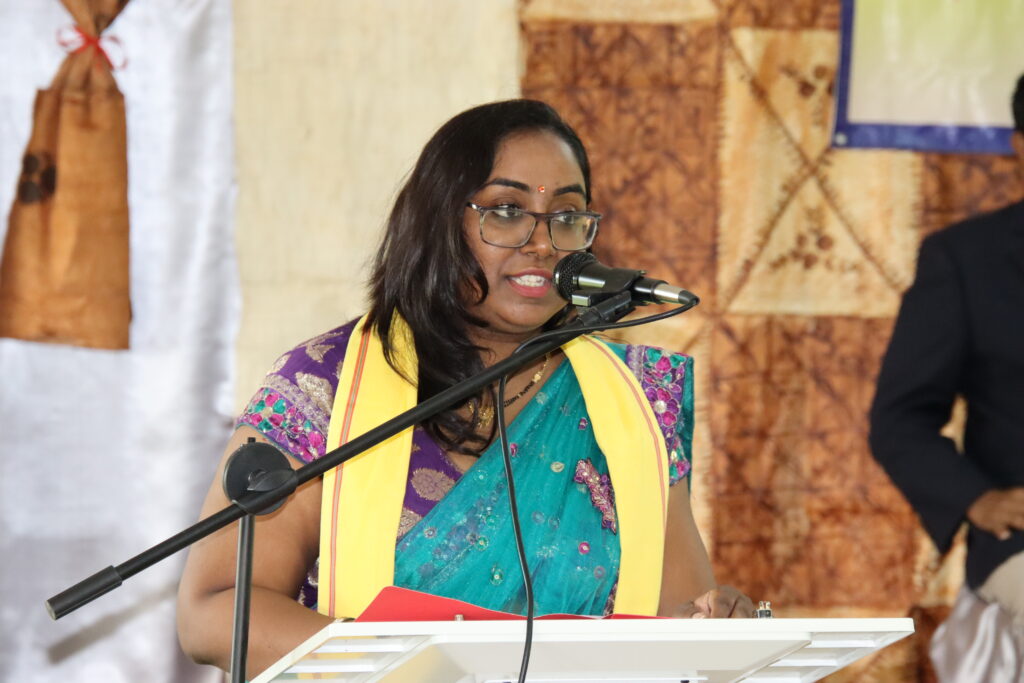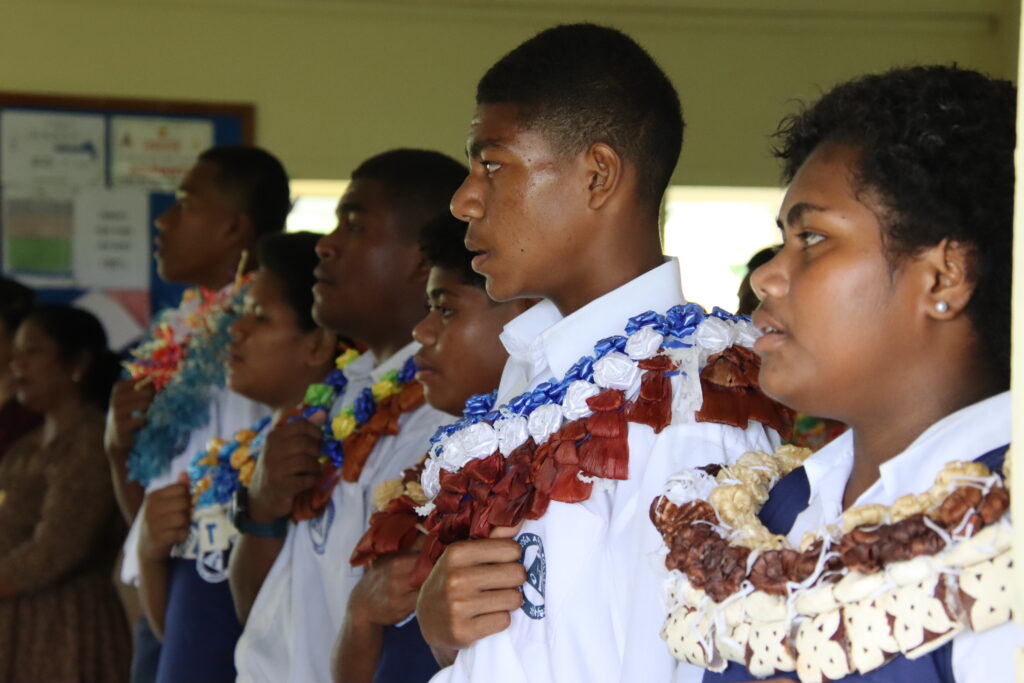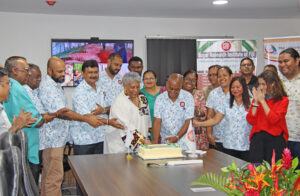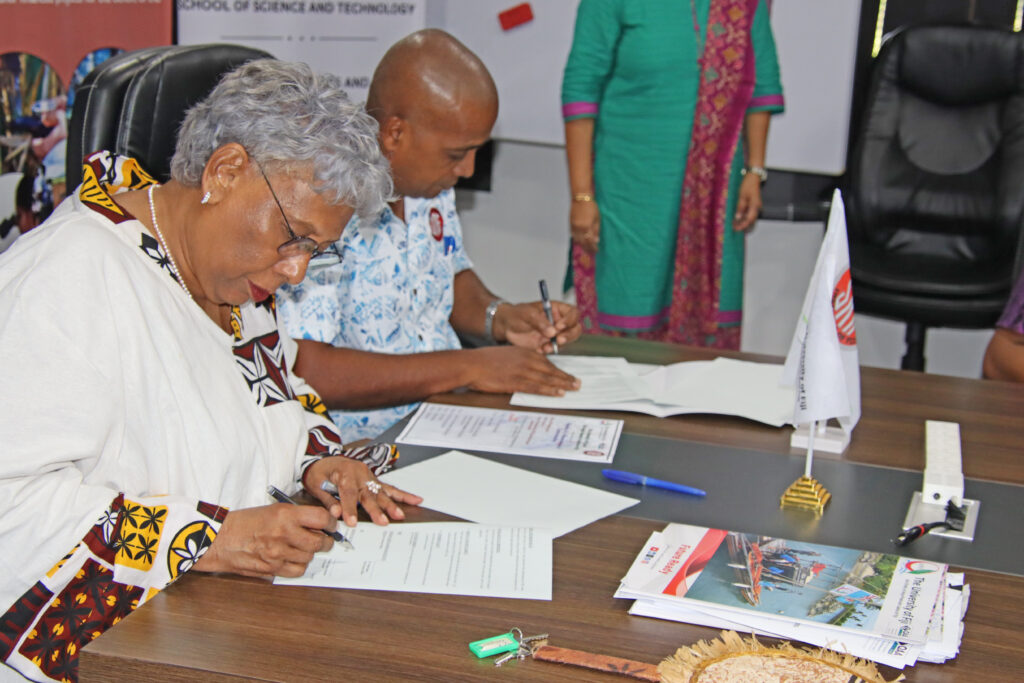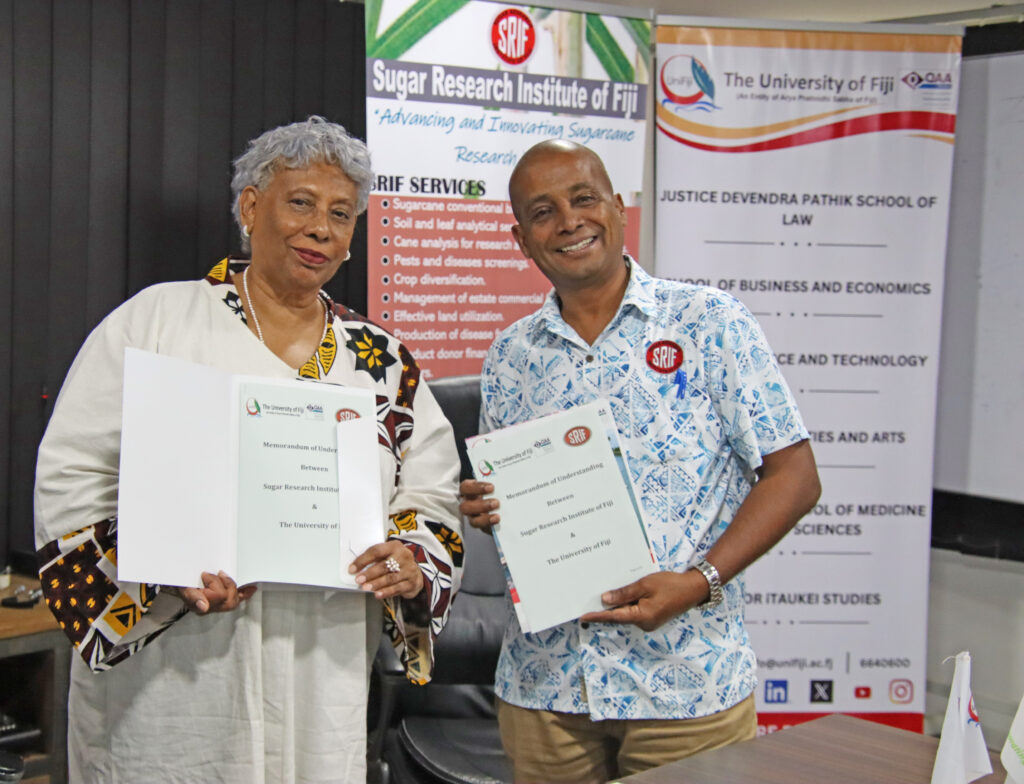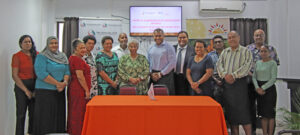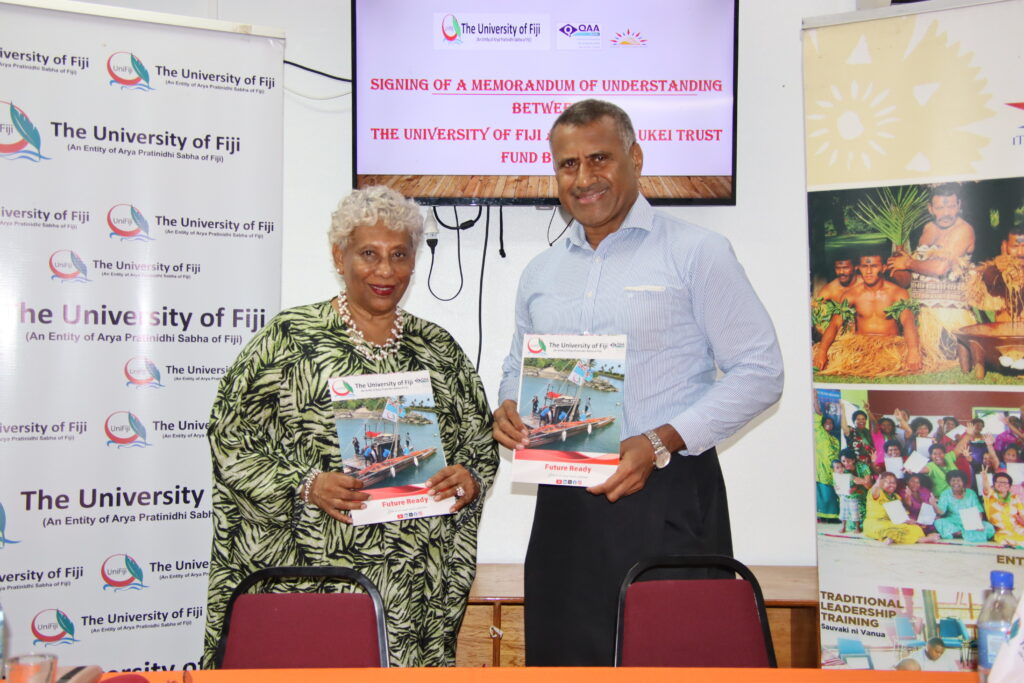The University of Fiji and the iTaukei Trust Fund Board today signed a Memorandum of Understanding for a further three years to continue collaborating on iTaukei education through the University’s Centre for iTaukei Studies (CIS).
In a new arrangement the iTTFB has undertaken to provide two scholarships annually for students studying at the CIS. The MOU also signposts the development of a revised curriculum which includes art, performance and culture as well as resource management programmes and courses through UniFiji’s other Schools such as the School of Business and Economics and the Department of Education in the School of Humanities and Arts.
The University received a grant in the 2024/2025 government budget to build a new Centre for iTaukei Studies which will include lecture and seminar space, staff offices and a gallery for exhibition and performances. The new building which will begin construction next month will provide facilities for implementing the MOU.
The Chief Executive Officer of the iTTFB, Aisake Taito and the Vice Chancellor of UniFiji Professor Shaista Shameem signed the MOU in a ceremony at the Samabula Campus of the University with Council members of the University and staff of both institutions as well as student representatives witnessing the event.
Mr Taito and Professor Shameem expressed their appreciation to their respective institutions for agreeing to continue with the relationship in the interest of iTaukei holistic education through the University of Fiji.
Speaking at the signing ceremony, the University’s Vice-Chancellor, Professor Shaista Shameem, emphasized that this partnership is not a new beginning but rather the continuation of a collaboration that started three years ago.
“This time there is much more emphasis on education, the curriculum and joint efforts towards the goals of fostering a better education structure within the Centre for iTaukei Studies of the University, the only such Centre in Fiji, as well as education more broadly aligning with both our Strategic Plans,” she stated.
Professor Shameem also highlighted that plans are already in motion for a new building to house the Centre for iTaukei Studies, with approval from the University Council to construct the facility at the Saweni campus.
“We are embarked on constructing our CIS new building for which the Council approved the site at Saweni on Saturday. Architects have been engaged and we expect to begin construction as soon as the plans are approved and ground prepared,” she added.
iTTFB Chief Executive Officer, Aisake Taito, reaffirmed the significance of the MOU, describing it as a commitment to safeguarding and promoting the Fijian language, traditions, and cultural knowledge while empowering indigenous communities.
“This partnership will support research, documentation, and dissemination of indigenous knowledge, including Vanua institutions and social structures. It will also contribute to scholarly literature authored by indigenous researchers and provide career pathways for young people dedicated to serving their communities,” he said.
Taio further stressed that the collaboration aims to equip future generations with leadership, management, and entrepreneurial skills, allowing them to maximize opportunities within indigenous-owned resources.
University of Fiji Students Association President, Rodney Vakaloloma, welcomed the initiative, recognizing it as a crucial step forward in fostering indigenous education and cultural identity.
“The introduction of two new scholarships, the ongoing curriculum revision under the Centre for iTaukei Studies, and the establishment of a purpose-built iTaukei Centre will provide students with invaluable opportunities to engage with indigenous knowledge, arts, and resource management,” he stated.
“This collaboration not only enhances academic learning but also ensures that future generations remain connected to Fiji’s cultural heritage while promoting inclusivity and understanding among students,” Vakaloloma added.
The signing of this MOU marks a significant milestone in strengthening iTaukei education and cultural preservation. Through this partnership, the University of Fiji and iTTFB are laying the foundation for sustainable initiatives that will empower students, researchers, and indigenous communities for years to come.
![]()


